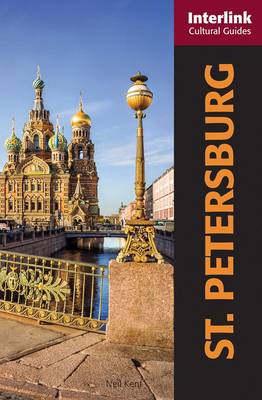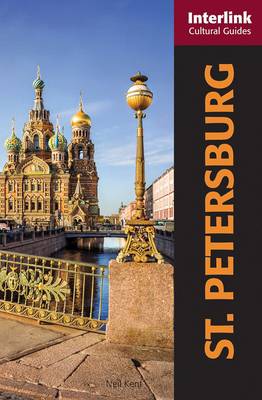
- Retrait gratuit dans votre magasin Club
- 7.000.000 titres dans notre catalogue
- Payer en toute sécurité
- Toujours un magasin près de chez vous
- Retrait gratuit dans votre magasin Club
- 7.000.0000 titres dans notre catalogue
- Payer en toute sécurité
- Toujours un magasin près de chez vous
24,95 €
+ 49 points
Description
St. Petersburg is one of the world's most beautiful cities. Most of its baroque and neoclassical palaces and churches are modelled on those of Italy and France, in turn inspired by the temples of classical Greek and Rome. Yet it is situated on a swamp, a location so insalubrious that it took the lives of the thousands who built the city. Founded by Peter the Great on land seized from Sweden in 1703, the Tsar made it into his new capital and Russia's gateway to Europe. Guarded by the Kronstadt Fortress, it was never conquered and under his successors the city achieved a splendor and cultural richness that vied with other European capitals. After the Golden Age of the 1830s when Pushkin and Lermontov wrote some of Russia's greatest literature, famine and war would undermine political and cultural life, and the Revolution led to calamity. Nonetheless, in the dying embers of the old regime, music, art and theatre all thrived, creating a Silver Age which brought the city renewed renown. During the Soviet period, the city, renamed Leningrad, fell into a Cinderella-like slumber, with Moscow taking primacy. Yet it survived both wars to enjoy a revival after the fall of the Soviet Union under its old name. Neil Kent considers the extraordinary history of St Petersburg along with its political, religious, cultural and social dimensions, rich in stories and anecdotes from its various periods. Its musical heritage is unrivalled: Mussorgsky, Rimsky-Korsakov, Tchaikovsky and Rachmaninov are all associated with the city. A walk today through the streets and courtyards evokes the world of Dostoyevsky who immortalized its violent underbelly in his 1865 novel Crime and Punishment. He turned to Orthodoxy for inspiration, as does the modern city today. This revival has been multifaceted, its pictorial glories on display in the Russian Museum and Hermitage Gallery. As Kent stresses, St Petersburg remains a city of paradox, full of tragedy but also of breathtaking beauty and endurance.
Spécifications
Parties prenantes
- Auteur(s) :
- Editeur:
Contenu
- Nombre de pages :
- 224
- Langue:
- Anglais
- Collection :
Caractéristiques
- EAN:
- 9781566560467
- Date de parution :
- 15-05-17
- Format:
- Livre broché
- Format numérique:
- Trade paperback (VS)
- Dimensions :
- 135 mm x 201 mm
- Poids :
- 317 g

Les avis
Nous publions uniquement les avis qui respectent les conditions requises. Consultez nos conditions pour les avis.






